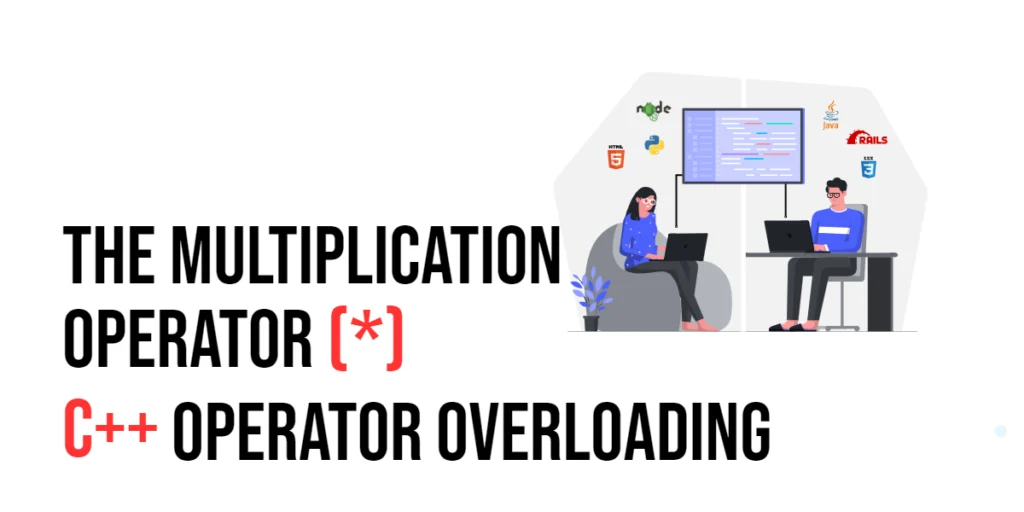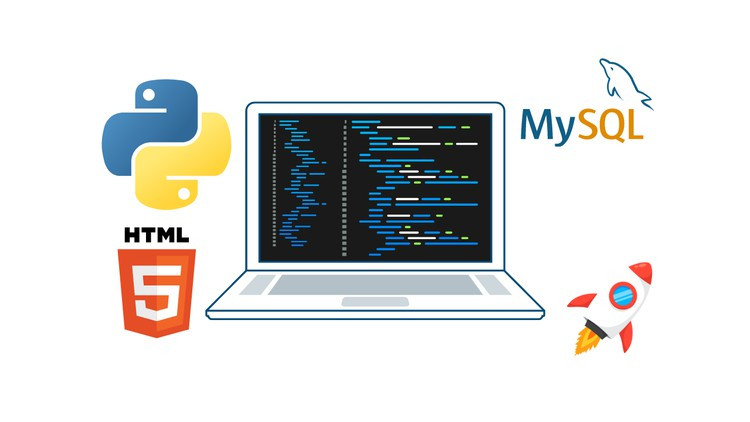Operator overloading is a fascinating feature of the C++ programming language that offers developers the ability to redefine standard operators to perform specialized tasks. This powerful capability enhances code readability and allows for more natural data manipulation within specific domains.

with hands-on learning.
get the skills and confidence to land your next move.
In this guide, we delve into overloading the multiplication operator (*), a key player in both basic and advanced programming scenarios. We aim to demystify this process, ensuring it is straightforward for beginners and robust enough for real-world applications.
What Exactly is Operator Overloading?
At its core, operator overloading in C++ allows developers to customize how operators (like +, -, *, and /) work with user-defined types. Typically, these operators are limited to handling primitive data types such as integers and floats. However, by overloading them, you can, for example, enable multiplication for objects representing complex mathematical concepts or graphic elements.
Consider a scenario where you’re working with complex numbers, which consist of a real part and an imaginary part. Normally, multiplying these numbers using basic C++ would be cumbersome and unintuitive. Operator overloading simplifies this by letting you define multiplication in a way that directly corresponds to the mathematical rules of complex numbers.
Why Should You Overload the Multiplication Operator?
Multiplying objects isn’t as straightforward as multiplying simple numbers. The multiplication operator is heavily utilized across various fields, such as mathematics and physics, making it a prime candidate for overloading. By customizing this operator, you can seamlessly perform operations on:
- Matrices: Essential in computer graphics and physics simulations, where matrix multiplication is a frequent operation.
- Complex Numbers: Fundamental in electrical engineering and quantum physics.
- Vectors: Used in game development and physics to represent forces and movements.
- Custom Numeric Types: Such as big integers or high-precision decimals, crucial in cryptography and scientific calculations.
Overloading the multiplication operator for these types allows your code to reflect the mathematical intentions more clearly, making it easier to read, maintain, and extend. This approach not only streamlines complex operations but also makes your code mimic the actual algebra involved, thereby reducing the cognitive load on anyone trying to understand or debug it.
In the following sections, we’ll explore a practical example of overloading the multiplication operator to handle complex numbers, illustrating how this technique can be applied to enhance code functionality and clarity. By the end of this guide, you should feel comfortable implementing and using overloaded operators in your own C++ projects, making your programs more intuitive and effective.
Example: Overloading the Multiplication Operator for Complex Numbers
To better understand operator overloading, let’s delve into a practical example by overloading the multiplication operator (*) for a class representing complex numbers. Complex numbers, a fundamental concept in advanced mathematics, consist of a real part and an imaginary part. They are typically written in the form a + bi, where a and b represent real numbers, and i is the imaginary unit, the square root of -1.
Define the Complex Number Class
Let’s begin by creating a class to encapsulate complex numbers:
#include <iostream>
class Complex {
public:
double real; // The real part of the complex number
double imag; // The imaginary part of the complex number
// Constructor to initialize the complex number
Complex(double r = 0.0, double i = 0.0) : real(r), imag(i) {}
// Method to display the complex number in a human-readable format
void display() const {
std::cout << real << " + " << imag << "i" << std::endl;
}
};In this class, real and imag are the attributes that store the real and imaginary parts of the complex number, respectively. The display() method prints the number in a standard format.
Overload the Multiplication Operator
Next, we implement the overloading of the multiplication operator. The multiplication of two complex numbers (a + bi) and (c + di) results in (ac – bd) + (ad + bc)i, which combines both components:
Complex operator*(const Complex& lhs, const Complex& rhs) {
double real_part = lhs.real * rhs.real - lhs.imag * rhs.imag; // Real part of the product
double imag_part = lhs.real * rhs.imag + lhs.imag * rhs.real; // Imaginary part of the product
return Complex(real_part, imag_part);
}Here, lhs (left-hand side) and rhs (right-hand side) are the two complex numbers being multiplied. This function calculates the real and imaginary parts of the product and returns a new Complex object representing the result.
Use the Overloaded Operator
Finally, we demonstrate how this overloaded operator can be seamlessly integrated into our code, allowing us to perform multiplication on complex numbers as if they were primitive data types:
int main() {
Complex num1(4, 3); // First complex number
Complex num2(2, 7); // Second complex number
Complex result = num1 * num2; // Use the overloaded * operator
result.display(); // Displays "-13 + 26i"
return 0;
}In this example, multiplying num1 and num2 through our overloaded operator yields a new complex number, which is then displayed using the display() method.
This example not only demonstrates how operator overloading works in C++ but also shows how it can make your code more intuitive and readable. By extending standard operations to work with user-defined types, C++ allows for a more natural expression of problem-solving strategies, especially in domains like mathematics and physics where complex numbers are prevalent.
Best Practices for Overloading Operators in C++
Overloading operators in C++ can be incredibly helpful, making your programs both easier to read and more intuitive to use. However, this feature must be used wisely to avoid introducing confusion or inefficiencies. Here are a few essential tips to guide you when you’re overloading operators:
- Consistency: When you overload an operator, it should still feel natural to those who use it. For example, the multiplication operator (*) should still perform multiplication-like operations. If the use of your overloaded operator doesn’t closely align with its original purpose, it might confuse other programmers who expect it to behave in a predictable way. Always ask yourself: “Does this make sense?” If your overloading makes the operator do something unexpected, it’s probably a good idea to reconsider.
- Symmetry: In mathematics, operations like addition and multiplication do not depend on the order of the operands—the result of a + b is the same as b + a. When overloading binary operators like *, strive to maintain this symmetry whenever possible. This makes your overloaded operators easier to understand and use, as users won’t have to worry about the order of the operands.
- Efficiency: Operator overloading can sometimes lead to inefficiencies if not implemented carefully. One common issue is creating unnecessary copies of objects. To avoid this, you can return results by value, reference, or use move semantics, depending on what is most appropriate for the operation and the involved data types. Efficient overloading not only speeds up your program but also saves on memory and processing power, making your software more robust.
Conclusion
Operator overloading, especially for fundamental arithmetic operations like multiplication, can significantly enhance how your C++ code reads and functions. It allows you to express complex operations in a clear, intuitive manner, akin to how you would write simple arithmetic. As demonstrated in our example with complex numbers, overloading the multiplication operator (*) simplifies the code and eliminates the need for cumbersome function calls. Yet, it’s crucial to apply this powerful feature thoughtfully to keep your code clean and maintain its quality. When done right, operator overloading can make your software not only functionally efficient but also a pleasure to work with.







